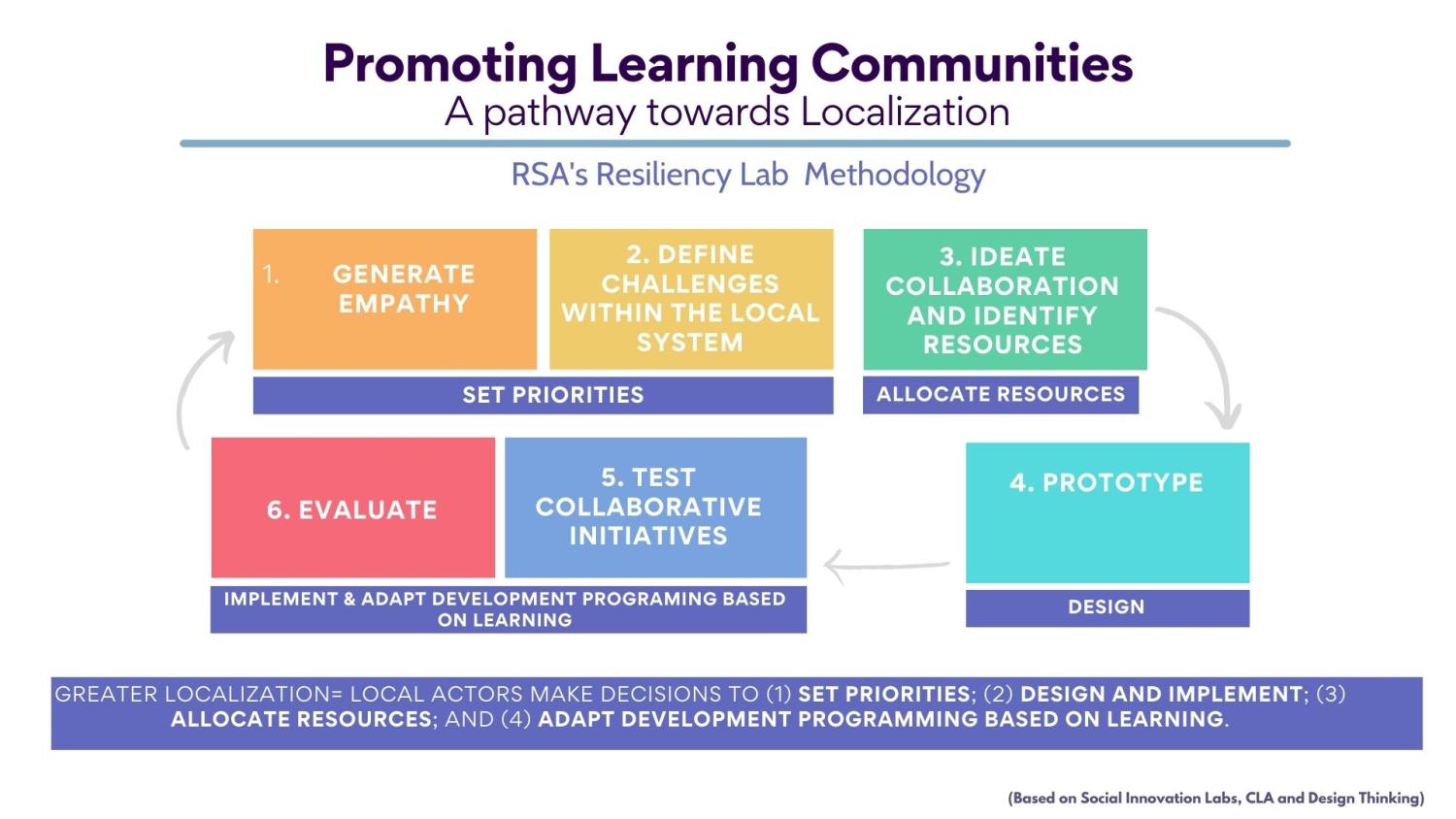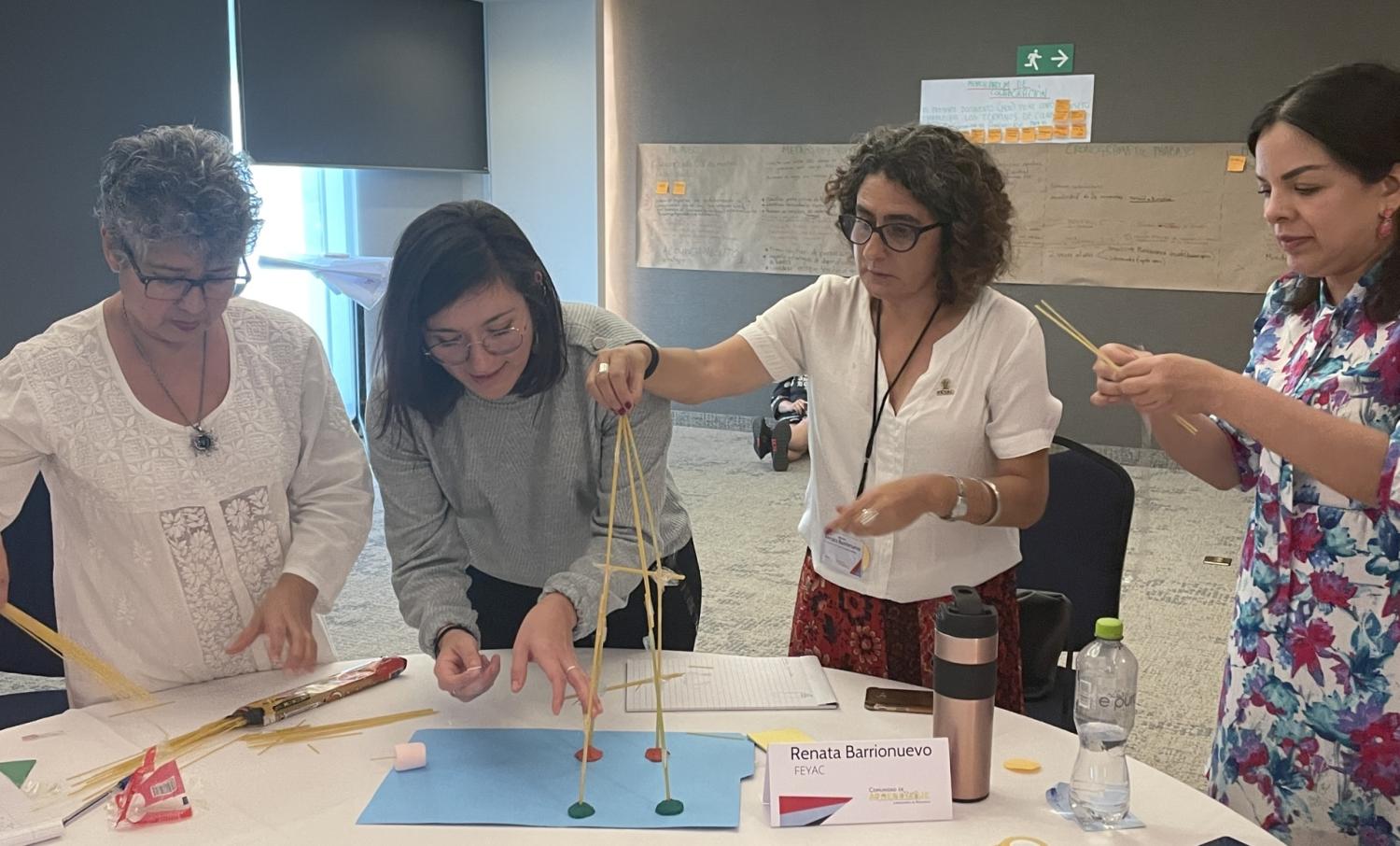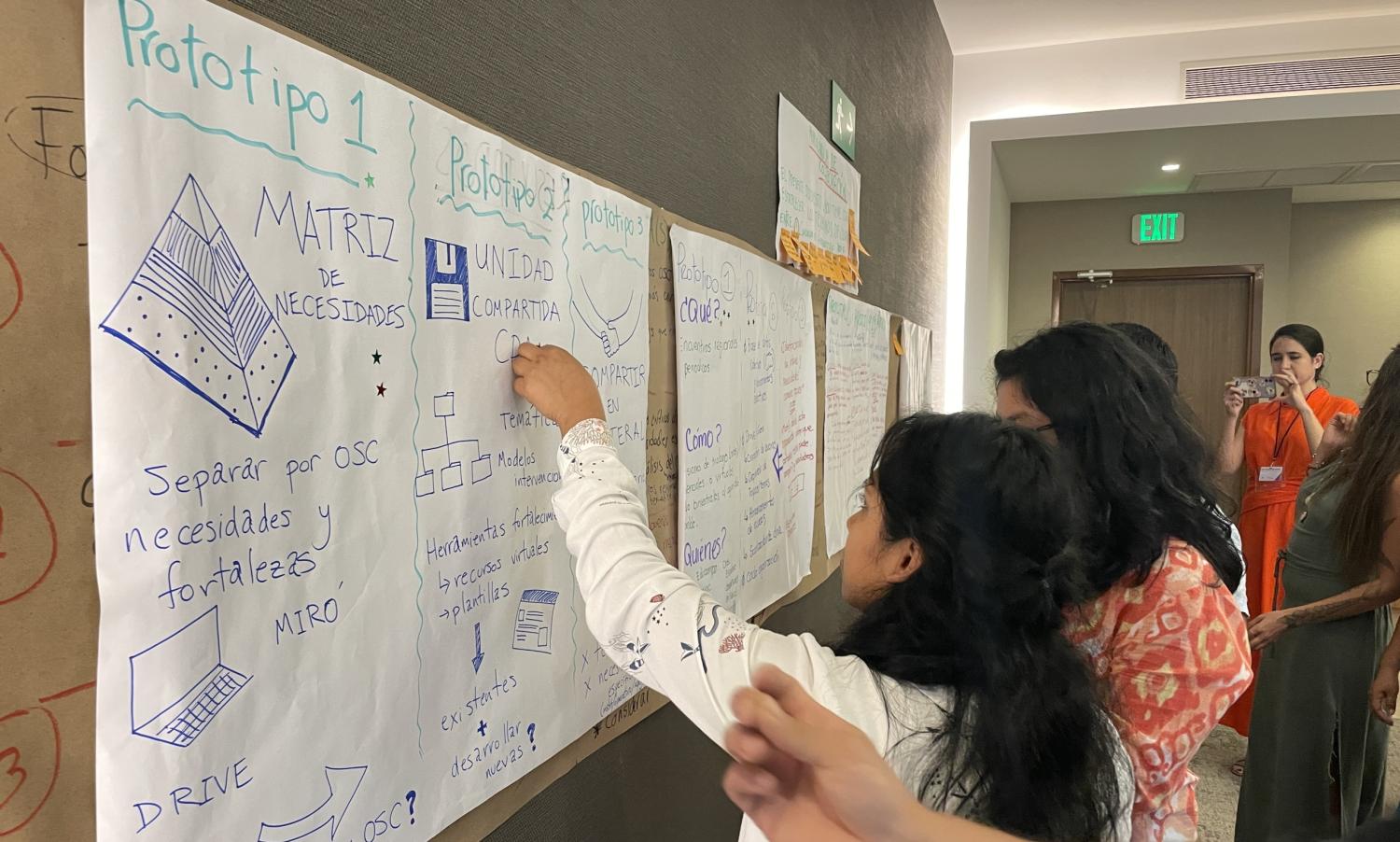Localization in Focus: Promoting Learning Communities: A Pathway Towards Localization in Mexico
This blog is part two of a six-part series on localization. Localization is a power-shifting process, where power is shifted to local actors to address development challenges. Over this series, Social Impact unpacks its own experiences on localization to shed light on our process and provide lessons learned for our funders, peers, and partners.
In partnership with FHI 360, Social Impact (SI) is fostering localization through the USAID Mexico Resilient Civil Society Activity (RSA), which engages with local civil society organizations (CSOs) to strengthen their resiliency, create opportunities for dialogue and collaboration, and promote their integration within local systems.
The RSA team developed the Resiliency Lab methodology, which creates a platform for local organizations and their stakeholders to co-design solutions that address shared social challenges. Social Impact’s role is to create and facilitate Learning Communities1 among the local organizations and stakeholders to identify challenges, develop solutions using design thinking and Collaborating, Learning, and Adapting (CLA) principles, and implement those solutions jointly, where it makes sense to do so2.
SI’s experience suggests that localization (i.e., power shifting) is more successful when local actors make decisions to set priorities, design and implement, allocate resources, and adapt development programming based on learning. The following diagram illustrates how the Resiliency Lab methodology promotes greater localization through its six implementation phases.

Step 1: Generate Empathy: With empathy as the starting point, the RSA team hosted a series of virtual and in-person workshops for over 18 months to create an environment of mutual understanding where collaboration and cross-sector partnerships are promoted as vital elements for resiliency and long-term sustainability of the CSOs’ operations
Step 2: Define Challenges within the Local System: The second step involves CSOs identifying and defining the common challenges they face in their local system to prioritize the most pressing ones they want to tackle together as a Learning Community. During the first Learning Community, organizations that are members of the New Partnership Fund identified the common challenges and opportunities related to the promotion and protection of children’s rights through initiatives that range from education to substance abuse programs.
Step 3: Ideate Collaboration and Define Resources: The third step entails CSOs devising potential pathways for initiatives that address the identified challenge and deciding how to allocate available resources within the community, such as expertise, time, and funding. While initial decision-making power in designing and implementing the Learning Communities belongs to the RSA team, this power is gradually shifted to the CSOs through the Resiliency Lab as they move further along in the pathway towards localization. As trust is established and stronger connections are developed, they recognize and use peer-to-peer knowledge to share experiences and best practices. Social Impact partnered with the Civic Council (Consejo Civico) in Monterrey, Nuevo León, and brought together local stakeholders from academia, government, and civil society to reflect on collective actions to prevent social violence in the region using the short version of the Resilience Lab methodology. During the session, participants formed “ComuniPaz,” to continue coordinated actions contributing to a culture of peace.

Step 4: Prototype: In the fourth step of the localization pathway, local organizations are empowered to use new tools shared by Social Impact through the Resiliency Lab to design collaborative initiatives that respond to social challenges in their local system. 11 organizations belonging to the second round of the Learning Community are currently creating a prototype of an online toolkit and platform for civil society organizations to protect Mexico. The platform will contain best practices, methodologies, and other resources.

Step 5: Test Collaborative Initiatives and Step 6: Evaluate: In the last two steps of the Resiliency Lab, the CSOs implement and adapt the collaborative initiatives designed in the prototyping phase. SI takes on a more facilitative role in implementing these new initiatives and promotes local ownership with CSOs making decisions on key issues such as timeline, governance structures, objectives, and communication strategies. In the first Learning Community, a new network called “PrevaleSER” was implemented, where 12 organizations across the state of Oaxaca joined forces to align efforts. Lessons learned and results from implementing the first prototype will guide CSOs in adapting their programming to fit the local reality. The iteration and adaptation of these collaborative initiatives is an ongoing process, and the Social Impact team is currently working with the CSOs to support the initiatives’ ongoing sustainability.
Close collaboration among local civil society organizations is key to achieving resiliency and sustainable social outcomes. Social Impact’s Resiliency Lab methodology gradually enables the creation of locally-led initiatives by empowering local actors to work together rather than compete. In Mexico, and likely in other countries as well, enabling leadership among local organizations requires an environment of trust, empathy, and collaboration.
1 A Learning Community is a group of civil society organizations that, through collaboration and interaction among themselves and other sectors, increase the impact and sustainability of their work. They build on local knowledge and strive to impact the local system.
2 Read more here: Rethinking Learning Communities Under the Collaborating Learning and Adapting Approach



